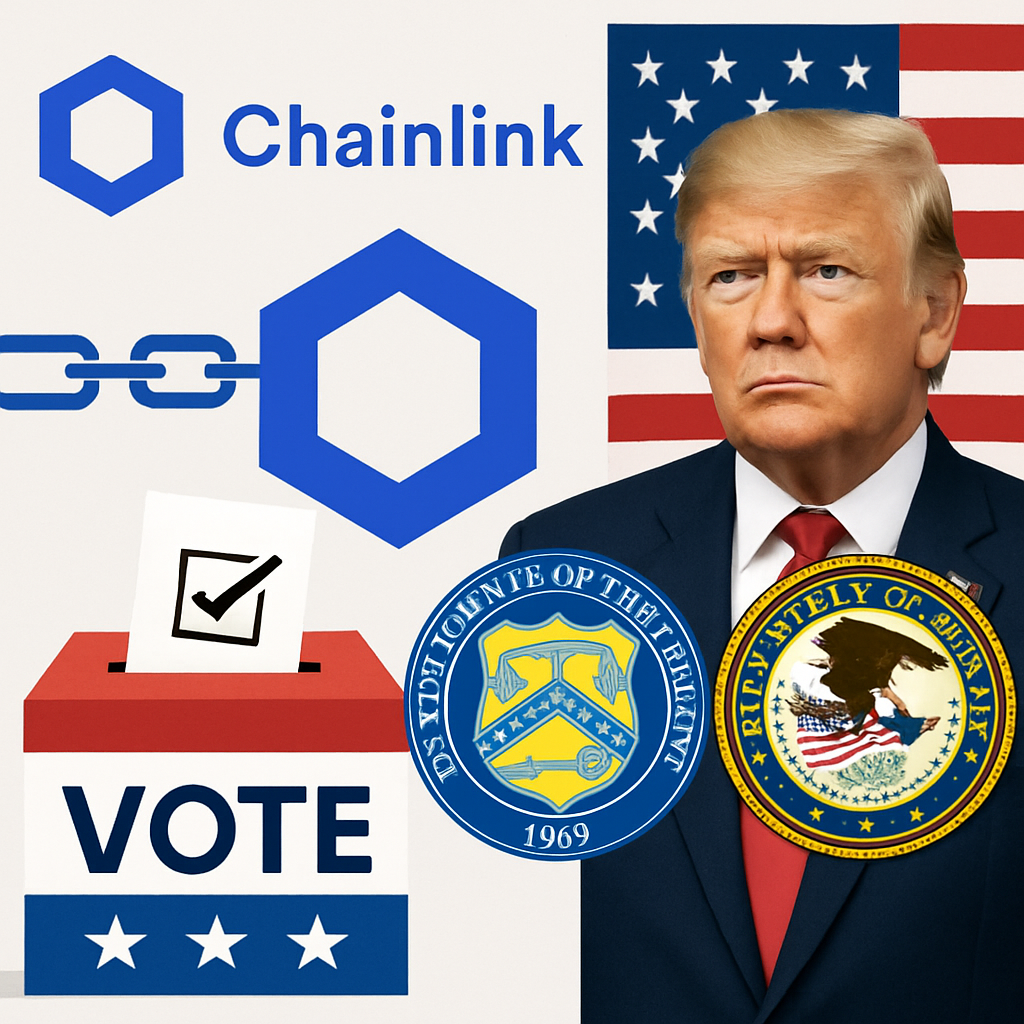Chainlink announced strategic collaborations with several U.S. government agencies under the Trump administration to integrate on-chain oracle services for election-related processes. Sergey Nazarov, co-founder of Chainlink Labs, detailed that the partnerships will enable real-time verification of voter registration data, secure tracking of ballot chain-of-custody, and transparent publication of election results on public blockchains.
These initiatives come amid growing interest from policymakers in applying blockchain technology to improve trust and auditability in governmental operations. By deploying Chainlink’s decentralized oracle networks, agencies aim to mitigate risks associated with centralized data feeds, such as tampering or single points of failure. Nazarov emphasized that the initial phase will focus on non-sensitive datasets, including public asset registers and procedural timelines, before addressing direct voter information.
The partnerships also include pilot programs to leverage Chainlink’s Cross-Chain Interoperability Protocol (CCIP) for cross-departmental data exchange. This would allow disparate agencies to synchronize records without exposing raw data, using cryptographic proofs and on-chain attestations. According to sources familiar with the matter, the Department of the Interior and the Federal Election Commission have scoped requirements for proof-of-concept deployments slated for Q4 2025.
Market observers note that government use cases represent a significant expansion beyond Chainlink’s traditional DeFi and enterprise clientele. “On-chain governance and public sector applications are the next frontier for decentralized oracles,” commented Ava Labs researcher Dana Scott. “Successful pilots could open the door for broader institutional adoption across regulatory, legal, and public service domains.”
Chainlink’s announcement follows months of discussions with the White House Office of Digital Innovation, which has solicited bids for blockchain-based identity and records management solutions. While no formal contract awards have been made public, industry insiders suggest that the Trump administration views emerging Web3 infrastructure as a tool to modernize federal IT operations.
Regulatory scrutiny remains a consideration. The SEC’s evolving stance on digital asset activities and the Department of Justice’s interest in election security mean that Chainlink must navigate complex legal frameworks as it engages with government partners. Chainlink Labs legal counsel Rajiv Menon noted, “Compliance with federal procurement regulations and adherence to election law mandates are paramount. We are working closely with agency counsel to ensure all implementations meet the highest standards of privacy and integrity.”
Should these collaborations proceed to full production, Chainlink could become one of the first blockchain projects to secure large-scale government adoption in the United States. The implications for public trust, data security, and blockchain legitimacy are substantial as the technology moves from obscure financial use cases to high-stakes civic infrastructure.

Comments (0)